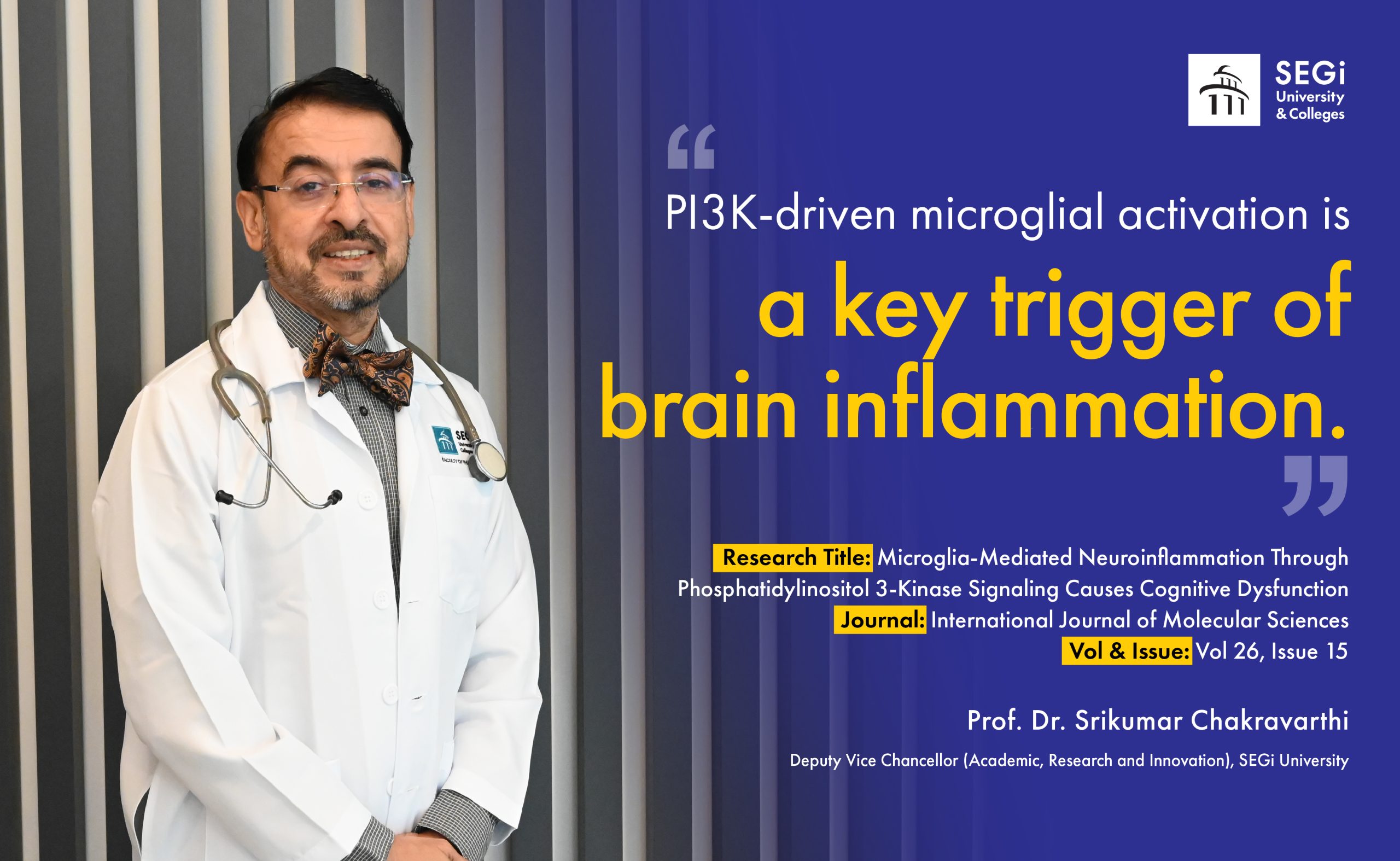Groundbreaking research from SEGi University has captured international attention, reinforcing its standing as a hub of scientific excellence and global impact. A team led by Prof. Dr. Srikumar Chakravarthi, Deputy Vice Chancellor (Academic) of SEGi University, has published an influential study in the International Journal of Molecular Sciences (IJMS), a leading Q1-ranked journal known for its exceptional visibility, accessibility, and rigorous standards. The article, titled “Microglia-Mediated Neuroinflammation Through Phosphatidylinositol 3-Kinase Signaling Causes Cognitive Dysfunction”, delves into one of the most pressing global health challenges — the molecular mechanisms driving neuroinflammation and its link to cognitive impairment.
The significance of this achievement is magnified by the journal’s stature. Indexed in Scopus, Web of Science (SCIE), PubMed, MEDLINE, and many other globally recognised repositories, IJMS is among the most respected scientific publications. With a strong impact factor and ranked in the top quartile for Biochemistry, Molecular Biology, and Organic Chemistry, the journal ensures that SEGi’s research reaches a worldwide audience of scientists, clinicians, and policymakers. Open access publication further enhances this visibility, democratising access to knowledge across borders and disciplines.
Neuroinflammation is a growing concern worldwide, with the World Health Organization estimating that over 55 million people currently live with dementia, and nearly 10 million new cases are reported annually. The findings from SEGi shed new light on potential therapeutic strategies targeting phosphatidylinositol 3-kinase signalling pathways, potentially paving the way for interventions that could reduce the global burden of cognitive disorders. This aligns strongly with the urgent need for innovation in healthcare as populations age and neurological conditions rise at unprecedented rates.
By publishing in such a prestigious journal, SEGi demonstrates its leadership in contributing solutions to global health challenges, reflecting both the rigour of its academic community and its mission to make research meaningful beyond the laboratory. This commitment speaks to why SEGi invests heavily in research — not only to advance scientific frontiers but also to ensure its work directly supports human wellbeing, social progress, and sustainable futures.
This research also underscores SEGi’s alignment with the United Nations Sustainable Development Goals (SDGs). By addressing neurological health challenges, SEGi supports SDG 3 (Good Health and Well-being), while its commitment to high-impact research and open-access publishing contributes to SDG 4 (Quality Education) and SDG 9 (Industry, Innovation, and Infrastructure). In doing so, SEGi positions itself as a driver of knowledge that uplifts communities and fosters sustainable growth on a global scale.
To read the full article, visit: https://www.mdpi.com/1422-0067/26/15/7212
This event is organised in support of the following United Nations Sustainable Development Goals (SDG):
SDG 3 – Good Health and Well-being
SDG 4 – Quality Education
SDG 9 – Industry, Innovation and Infrastructure

